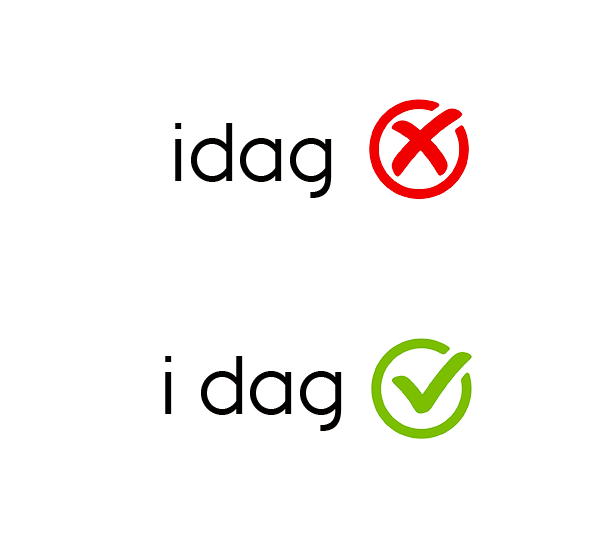‘I dag’ or ‘idag’ – in one or two words?

The Danish translation for today is ‘i dag’. However, many (native Danes) confuse the spelling of the word and write ‘idag’, because the two words are pronounced together. But the 'i' is a prepositional conjunction and not part of the noun ‘dag’.
Therefore, ‘i dag’ is always written in two words.
Word and Outlook automatically change it to the correct form, but webmail, LinkedIn and other social media don’t.
How do you avoid making the mistake? As a rule of thumb, try replacing ‘dag’ with a weekday: ‘i onsdags’ compared to ‘ionsdags’. You might then be able to see that it should be in two words: ‘i onsdags’.
The same applies to ‘i går’ (yesterday), ‘i morgen’ (tomorrow) and ‘i weekenden’ (in the weekend), which are always written in two words. And likewise for the following:
- i morgen
- i går
- i forgårs
- i år
- i sommer
- i april.